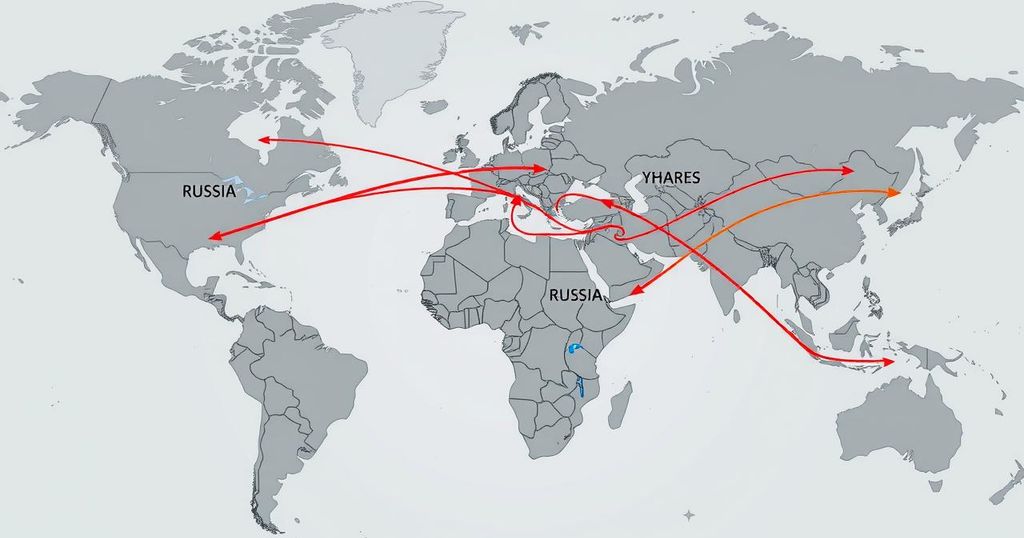Russia’s Exemption from Trump’s Tariffs: Analysis and Implications

Russia was excluded from President Trump’s newly announced tariffs, reflecting existing sanctions and a controversial diplomatic stance. Critics argue this favors Putin over U.S. allies. A pending bipartisan bill could impose heavy tariffs on Russian exports, signaling ongoing tensions regarding the Ukraine conflict.
Russia was notably excluded from the extensive tariffs announced by President Donald Trump, which are expected to impact nearly every country globally. The White House clarified that existing sanctions against Russia, in response to its invasion of Ukraine, have already precluded any substantial trade between the U.S. and Russia.
Critics argued that this omission reflects a preference from Trump for maintaining a close relationship with Russian President Vladimir Putin over fostering ties with U.S. allies. The absence of Russia from the tariff list has sparked commentary about Trump’s commitment to stringent measures against Russia amid ongoing geopolitical tensions.
Under the Biden administration, the U.S. significantly imposed sanctions on Russia due to its aggressive actions in Ukraine. Trump’s prior connections with Putin have raised apprehension that sanctions might be eased. Although Trump indicated potential tariffs on Russia if peace negotiations falter, the lack of current tariffs may rekindle doubts regarding his assertiveness against Russia.
On Wednesday, Trump introduced a baseline 10 percent tariff on imports from 180 countries, with additional penalties for other regions, including Europe, Japan, and China. Notably, trade between the U.S. and Russia has plummeted by over 90%, dropping from $35 billion in 2021 to a projected $3.5 billion in 2024.
While the White House stated that trade sanctions have caused Russian imports to be negligible, critics pointed out that the U.S. maintains more trade with Russia than with some smaller nations that are subject to tariffs. Press secretary Karoline Leavitt reiterated that sanctions hinder meaningful trade but hinted at prospectively stronger measures against Russia.
Criticism surrounding Russia’s exemption has been prevalent. Various political figures and commentators have voiced their discontent, questioning why Russia remains uniquely unscathed by the tariffs while others face significant levies. Former Ambassador Michael McFaul and other political commentators have called for explanations regarding this apparent preferential treatment.
Inquiries about further sanctions continue, with 50 senators supporting a bill that could instigate substantial tariffs on imports from countries dependent on Russian products, including a staggering 500 percent levy on imports from nations purchasing Russian natural resources. Analysts note that if enforced, these measures could have serious repercussions for the Russian economy.
Concerns regarding retaliation from tariffed countries were highlighted by Treasury Secretary Scott Bessent, stressing the potential for escalated tensions. The implementation of 500 percent tariffs on Russian commodities is contingent upon Moscow’s engagement in peace discussions, raising uncertainty about whether Russia will ultimately elude the impact of Trump’s tariffs.
Trump’s decision to exclude Russia from new tariffs amidst widespread levies on other nations has sparked fierce criticism. The existing sanctions already restrict trade with Russia, casting doubt on the effectiveness of Trump’s response to Putin’s actions. With bipartisan efforts for stronger sanctions pending, the future of U.S.-Russia economic relations remains uncertain, particularly if the conflict in Ukraine persists.
Original Source: www.newsweek.com







